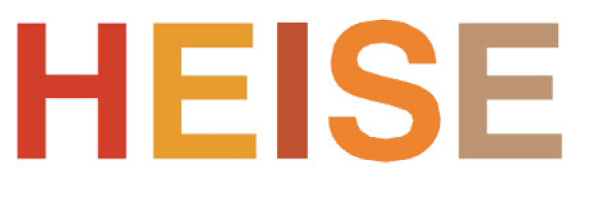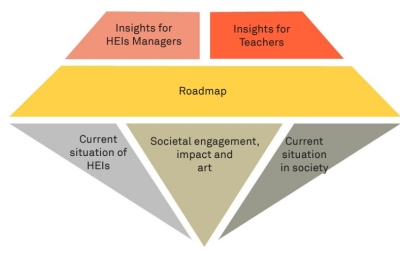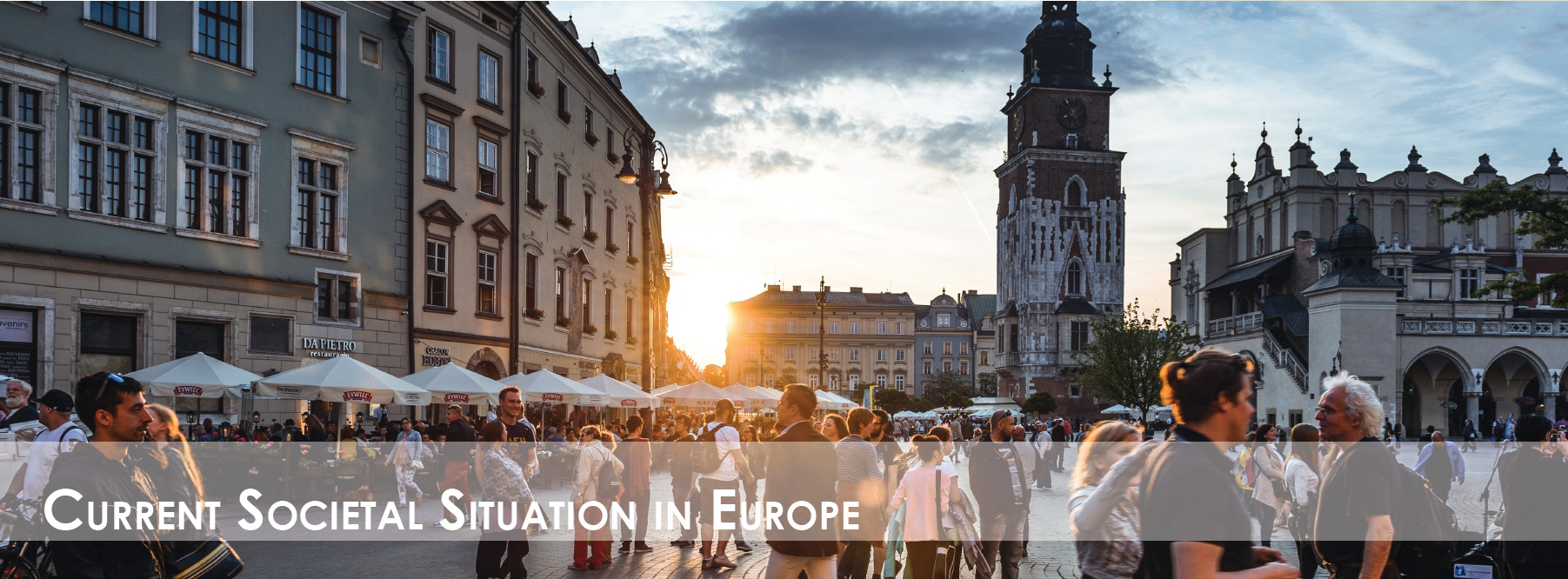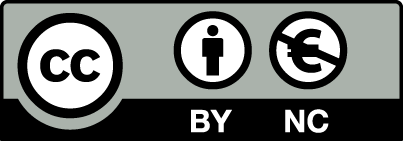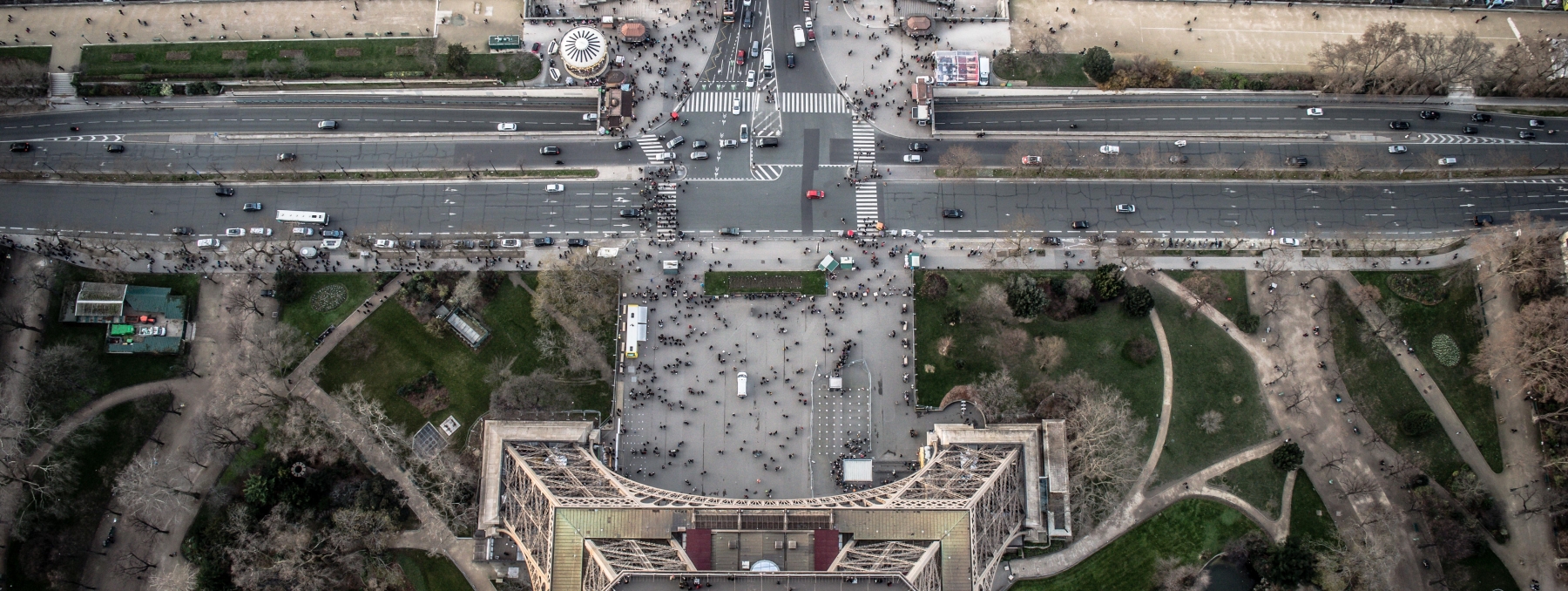|

Guiding Role of Policies
After the publication of the EU ‘Agenda for Culture in
a Globalising World’ (2007), a number of policy papers
have acknowledged that culture plays a key role
in European development, with a specific emphasis on
culture for local and regional development, beginning
with the European Parliament ‘Resolution on the Role
of Culture in the Development of European Regions’.
This document acknowledges the increasing importance
of cities and regions, and stresses that regional and
local development strategies that incorporate culture,
creativity and arts contribute very much to improving
quality of life in European regions and cities by fostering
cultural diversity, democracy, participation and
intercultural dialogue.
Furthermore, the ‘Council Conclusions on the Contribution of Culture to Local and Regional Development’ (2011) establishes that culture and creativity are the keys to innovation, which in turn contributes to social and economic progress. There are also other documents that aim to strengthen the different priority areas of EU policy through culture, for example, the ‘Green Paper on unlocking the potential of cultural and creative industries’ (2010), and ‘A Work Plan for Culture 2015-2018' (2014).
On 22 May 2018, the European Commission adopted a proposal for a New European Agenda for Culture, further developing the scope of the "European Agenda for Culture in a Globalised World". The New Agenda reaffirms that the cultural and creative sectors have the power to improve lives, transform communities, generate jobs and growth, and create spillover effects in other sectors. More precisely, one of the three strategic objectives of the New Agenda is to harness the power of culture and cultural diversity for social cohesion and wellbeing, by promoting cultural participation, mobility of artists and protection of heritage.
The actions that the European Commission will support to this end include the following:
- research on cultural crossovers to assess impacts in different fields including health and wellbeing (2018),
- development of specific actions for social inclusion through culture, through Creative Europe and Erasmus+ (2019),
- the launch of a project on "Cultural and creative spaces and cities" under Creative Europe to promote cultural participation and social and urban regeneration (2018).
The United Nations General Assembly recognized the promotion of mental health and wellbeing as health priorities within the Sustainable Development Agenda, which was adopted in September 2015. Thus, world leaders have committed to contribute to a “better world where physical, mental and social wellbeing are assured,(...) by prevention and treatment of non-communicable diseases, including behavioural, developmental and neurological disorders, which constitute a major challenge for sustainable development.” Specifically, Goal 3 of the 17 Sustainable Development Goals (SDGs) focuses on ensuring healthy lives and promoting wellbeing for all at all ages. (UN, 2018)
|
|

Guiding Role of
Frameworks
These various frameworks help to plan, analyze, and
report HEIs’ societal impact from the sustainability perspective
in all of its dimensions: ecological, economic
and social. Each of the frameworks adopts different
emphasis and perspectives, such as nations, efficacy,
resources, re-distribution and usage.
There exists a multitude of different models or frameworks
aiming to identify, categorize and help us to find
solutions to the key challenges. Some models focus
mainly on climate change and ecological issues, such
as the planetary boundaries framework (Steffen et al 2015). (learn more)
Other frameworks that include the societal aspects in a
more comprehensive way include:
· Iceberg model: learn more
· Doughnut model: learn more,
see the video
· Footprint : learn more
|
|
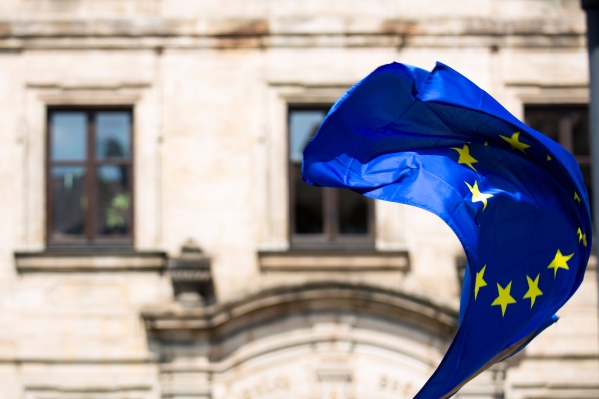
Guiding role of funding
sources
Societal challenges can be addressed by HEIs
in the process of teaching (educating) as well
as in research. However, it is interesting to note
that, according to the views shared in the EU,
societal challenges need to be addressed not
only in the object of research, but also within
research teams and the organization of research.
This viewpoint is present in several of the
funding instruments:
European Research Council (ERC) (founded in 2007,
with a budget of 13.1 billion euros for the period 2014-
2020. See facts and figures
). As of now, the European Research
Council has identified seven such key areas which are
of particular interest for ERC projects, and has set up
working groups to address the (societal) challenges within
the organization of research itself. These include:
· gender balance (which aims to improve the gender
balance in research)
· open access (which aims to improve and promote
free access to publicly funded research on the internet)
· innovation and relations with industry (which aims
to promote engagement of industrial partners in research
and facilitate ties between industry and the research
community)
· expanding European participation (which aims
to facilitate the inclusion/engagement of researchers
from European regions that are lagging in terms of research)
· strengthening international participation (which
aims to facilitate the internationalization of research
via inclusion/engagement of non-EU researchers into
EU-funded research)
· key performance indicators (which aim to further
developa system of performance indicators in research
and broaden the understanding of societal impact
of research)
· science behind the projects (which aims to improve
the systematization and dissemination of of research).
For more information, see https://erc.europa.eu/about-erc/thematic-working-groups
As implied by this list, the societal impact of research
can be expanded by stronger engagement of stakeholders
and by facilitating the participation of disadvantaged
groups in research. Obviously, as development
brings new challenges, the challenges faced in the
organization of research may change. However, it is
important to keep in mind that it is not only the object
of research and the results, but also how the research
is conducted and disseminated that can engender societal
impact.
Horizon 2020 is the biggest EU research and innovation
programme ever. Almost €77 billion of funding is
available over seven years (2014 to 2020) – in addition
to the private and national public investment that
this money will attract. The goal of the programme is
to ensure Europe produces world-class science and
technology, removes barriers to innovation and makes
it easier for the public and private sectors to work together
in delivering solutions to the big challenges facing
our society. There are three priorities in Horizon
2020: Scientific excellence, industrial leadership and
societal challenges. The programme brings together
three separate initiatives:
- Coupling research to innovation – from research to
retail, all forms of innovation
- Focus on societal challenges facing EU society,
e.g. health, clean energy and transport
- Simplified access for all companies, universities,
and institutes throughout the EU and beyond.
learn more
The European Social Fund’s (ESF) role as a funding
source is important for tackling the societal issues. ESF
describes its goal thus: The European Union is committed
to creating more and better jobs and a socially inclusive
society. (...) There are projects aimed at education
systems, teachers and schoolchildren; at young
and older job-seekers; and at potential entrepreneurs
from all backgrounds. People are the focus of the ESF.
learn more
|
